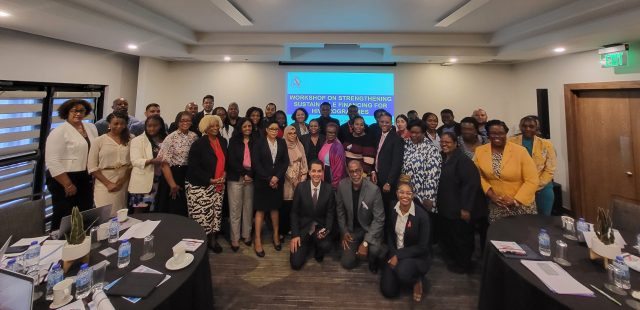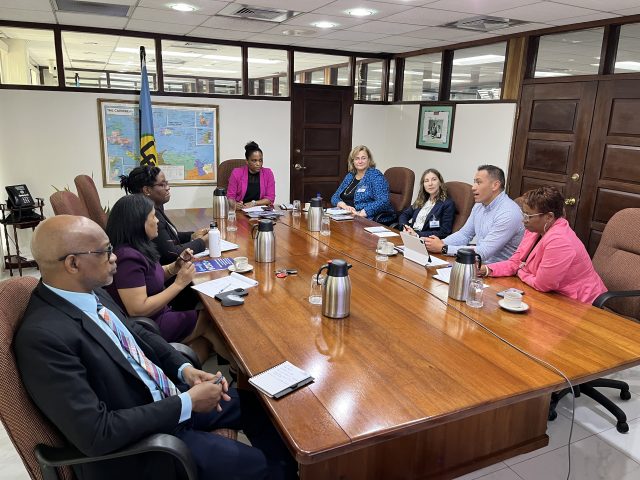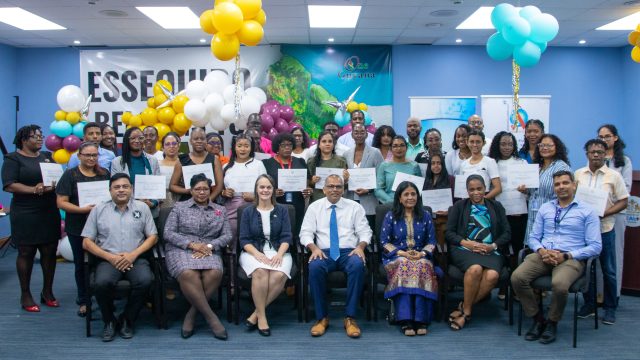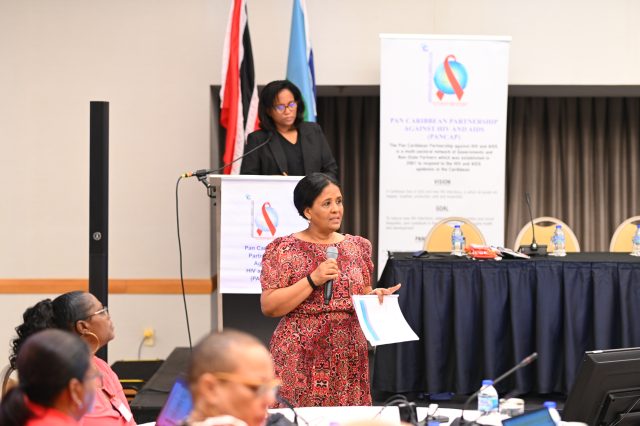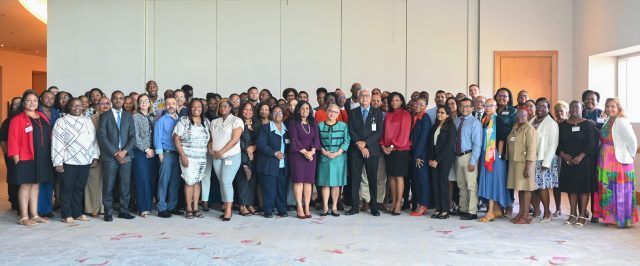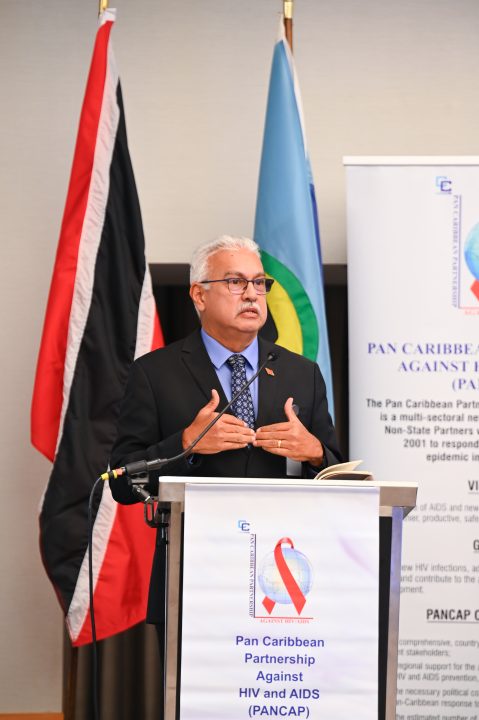Pan Caribbean Partnership Against HIV and AIDS (PANCAP), Georgetown, July 10, 2024 – Ensuring the availability of sustainable financing for HIV programmes remains a critical element of the regional HIV response. In this regard, the Pan Caribbean Partnership against HIV and AIDS (PANCAP), recently convened a workshop on Strengthening Sustainable Financing for HIV Programmes, in the Republic of Trinidad and Tobago during the period July 8-9, 2024.
The primary aims of this workshop were to (1) Build capacity and foster commitment towards sustainable financing for HIV programmes, and (2) Catalyse efforts towards sustainable financing for HIV programmes through resource mobilization and social contracting.
The Director of the PANCAP Coordinating Unit (PCU), Dr Wendy Telgt Emanuelson encouraged participants to openly share ideas and collectively explore innovative solutions towards achieving sustainable financing for regional HIV programmes. “Share your experiences, and explore potential partnerships for collaborative action, so that together we can create a future where all individuals affected by HIV and AIDS have equitable access to quality services and support,” she emphasised.
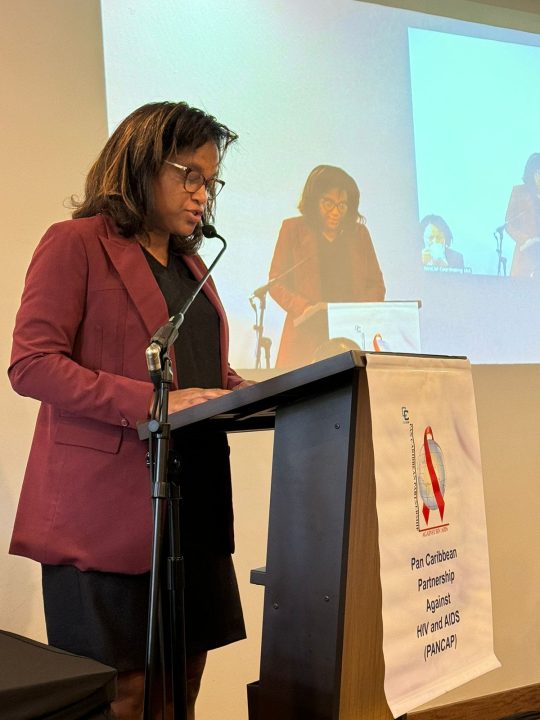
Speaking on behalf of the Honourable Ayana Webster-Roy, Minister in the Office of the Prime Minister with responsibility for the National AIDS Coordinating Committee (NACC), was the Technical Director of the NACC, Dr Ayanna Sebro. Dr Sebro highlighted that as countries strive to end AIDS by 2030, there is an urgent need to scale up their respective responses which require funding interventions to close many of the remaining gaps.
“New sources of funding are required to ensure the existing programmes are sustainable, and even more importantly, that they reach more people,” Dr. Sebro underscored. “Sustainable financing is achievable through proper strategising and planning, along with a collaborative multi-sectoral approach with stakeholders. From Government to Civil Society Organisations (CSOs), from policymakers to service delivery officers, from academics to the private sector, all sectors, all key populations, at all levels must collaborate to optimise, minimise duplication and be more efficient, and work smarter,” she added.
During the two-day workshop, experts in Health financing delivered interactive presentations on key concepts such as The Caribbean Economic Landscape, Understanding the Landscape of Community-Led Initiatives and HIV Financing in the Context of the Caribbean Reality. Best practices, case studies, and the practical use of resource mobilization to enable the sustainability of the HIV Response were also shared with participants. Panel discussions comprising government officials, CSO representatives and policymakers examined the challenges and successes experienced by HIV programmes via various modalities of financing.
PANCAP will continue to engage its partners in exploring and supporting investment strategies, national policies, and regulatory frameworks to strengthen sustainable financing for HIV programmes throughout the Latin American and Caribbean regions.
National AIDS Programme Managers, representatives from regional civil society organisations, donor agencies, government representatives and technical partners from across the region participated in the workshop. PANCAP sincerely thanks the United States Agency for International Development (USAID) and The Global Fund for making this workshop possible.

